
FOOD SECURITY
Uphakanini — Ma Hazel’s Cape Town Kitchen, where you get more than just a meal
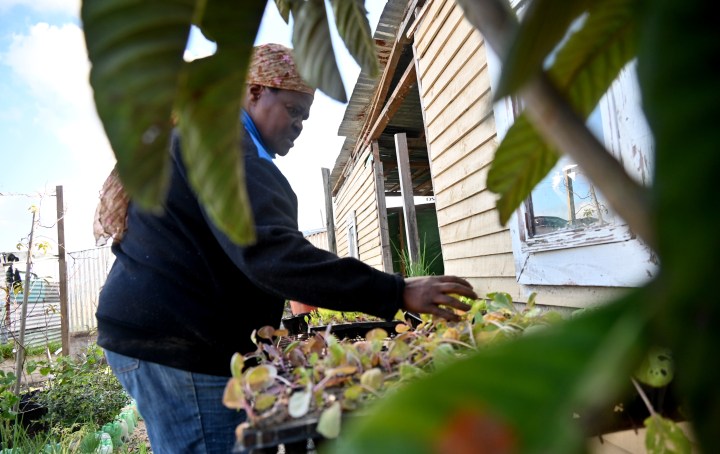
‘People often feel ashamed to have to ask for food and needing assistance, so I thought if I could add activities like training on how to grow food, workshops for the elderly and on GBV, it would make them feel better when they walk out of here with their skaftin (lunchbox),’ says Ma Hazel.
Just over 30km outside Cape Town is a township called Mfuleni, which means “river” in isiXhosa. It consists of formal RDP housing and informal housing – shacks – all crammed together on narrow streets.
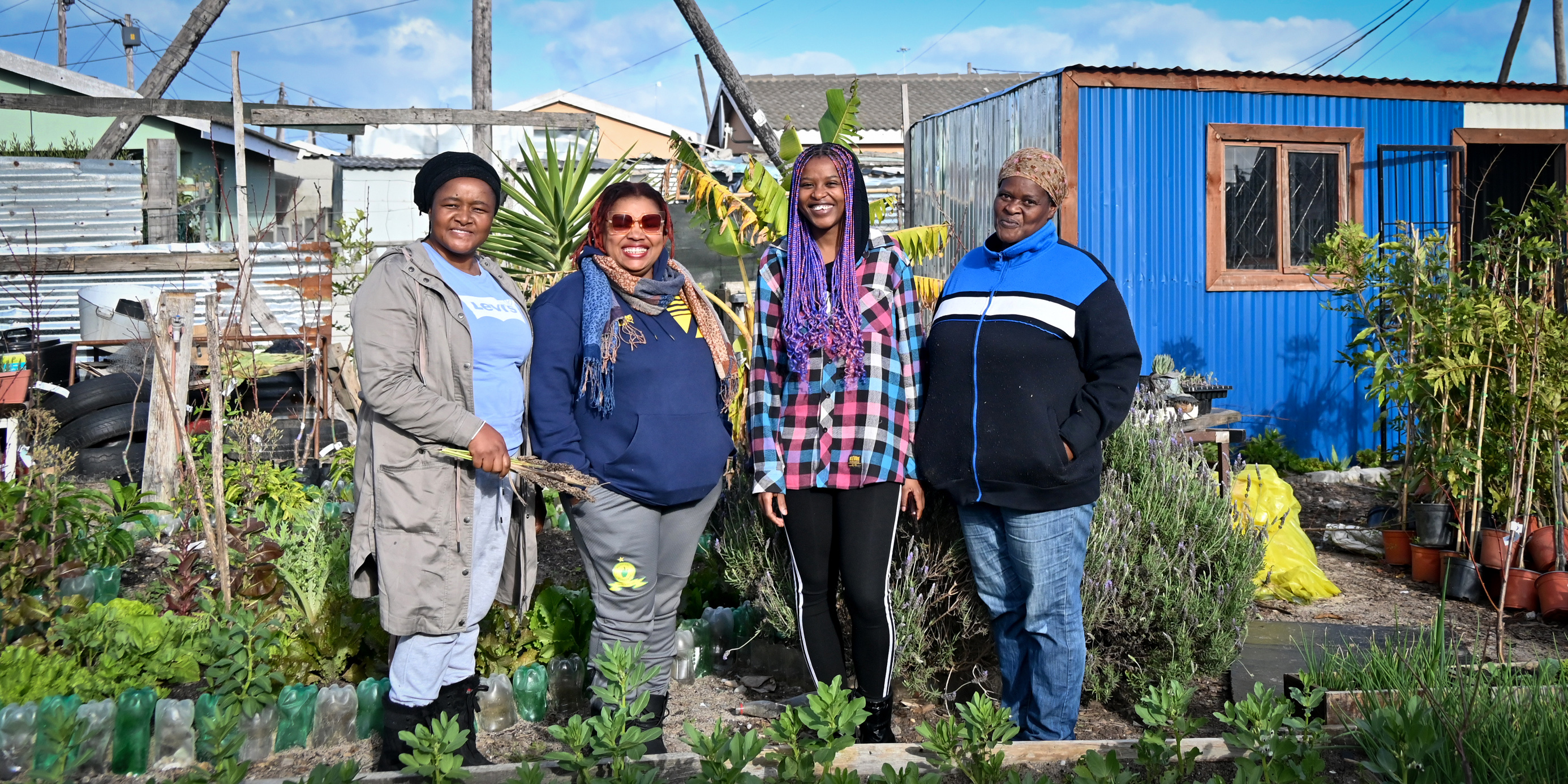
Lulama Mabaleka, Nomonde Buthelezi, Sanelisiwe Mimi Nyaba and Nomphumzi Hazel Nyaba from Niphakanini community kitchen stand proudly in their organic garden in Mfuleni. 20 June 2023. (Photo: Nathi Qondile)
Its residents are mostly low- to no-income earners, all trying to eke out a living, and it is characterised by flocks of children hanging around street corners. Mfuleni is battling issues of HIV/Aids, crime, unemployment and food insecurity.
Nomphumzi “Ma Hazel” Nyaba is an Mfuleni resident and says that the community’s food insecurity is what prompted her to create a food garden that provides for her community kitchen. The kitchen is also an intersection for community discussions on issues such as gender-based violence, planning for an early childhood development centre and running workshops for self-development.
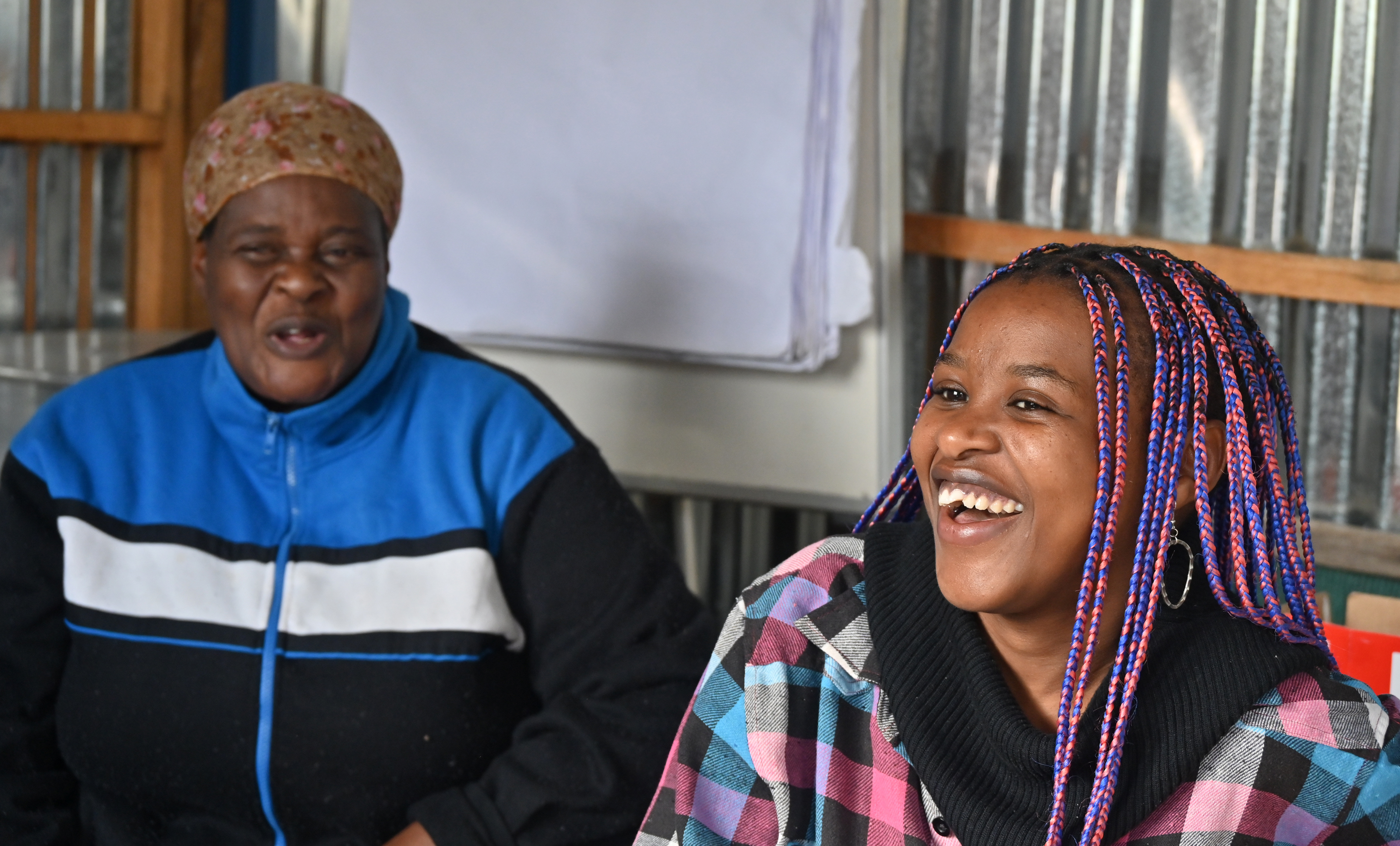
Sanelisiwe Mimi Nyaba (right) with Nomphumzi Hazel Nyaba. (Photo: Nathi Qondile)
“I learnt how to farm from my home in the rural areas before I came to Cape Town, so it is something that has always been within me.”
She started her food gardening journey in 2016, responding to the food needs of Mfuleni by attending training with nonprofit organisation Soil for Life which teaches people how growing their food has nutritional and wellbeing benefits. There, she met a network of like-minded people.
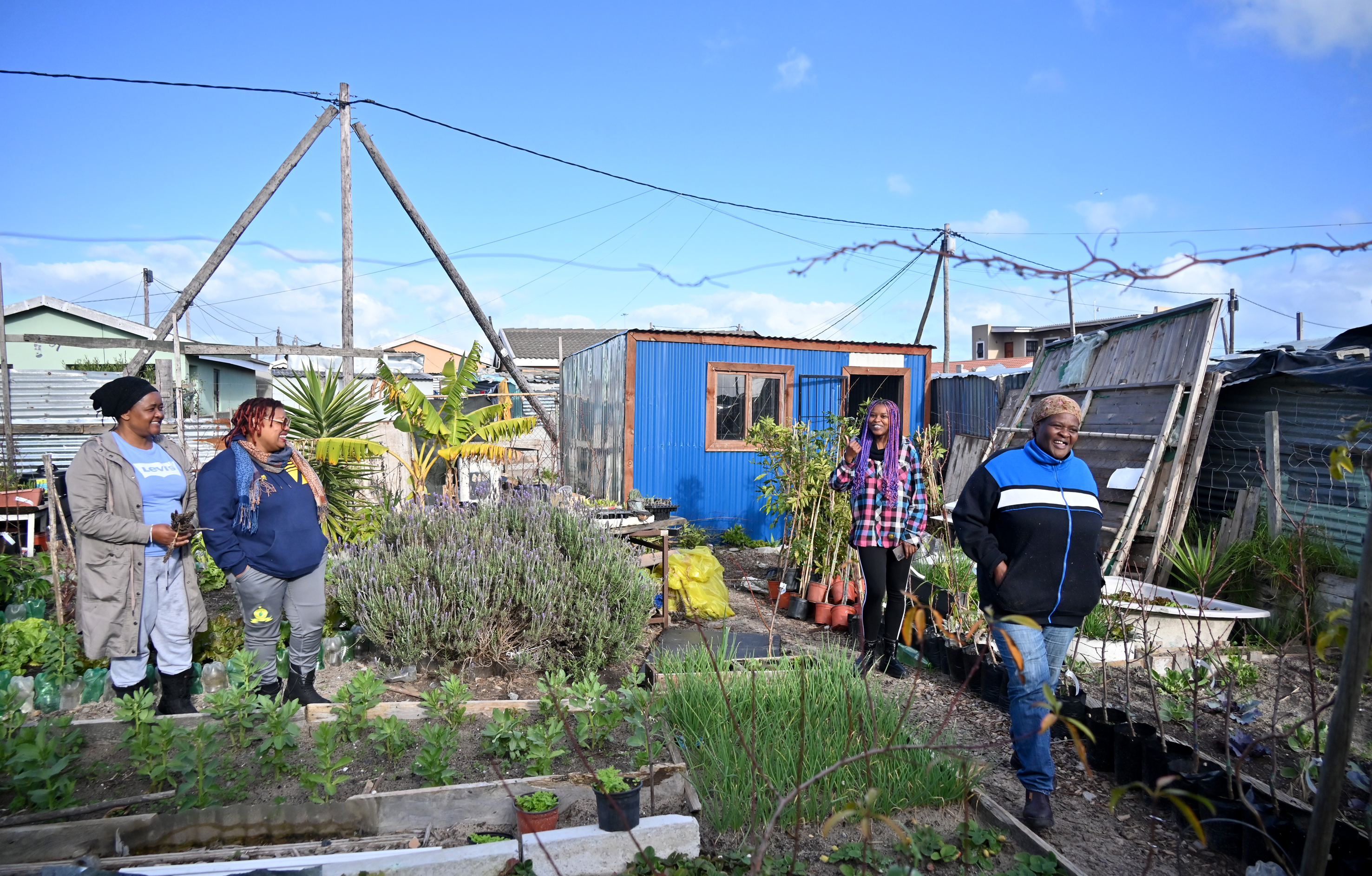
From left: Lulama Mabaleka, Nomonde Buthelezi and Sanelisiwe Mimi Nyaba with Nomphumzi Hazel Nyaba. (Photo: Nathi Qondile)
After her training, she started her garden and trained her fellow community members to grow their own gardens. However, because planting and harvesting is a slow process, people became impatient and out of frustration ended up destroying her garden.
While rebuilding her garden she met and partnered with another NPO, Food Agency Cape Town (Fact), through a friend and urban farmer, Nomonde Buthelezi. Through Fact, the idea of a community kitchen that offered more than just a plate of food was born.
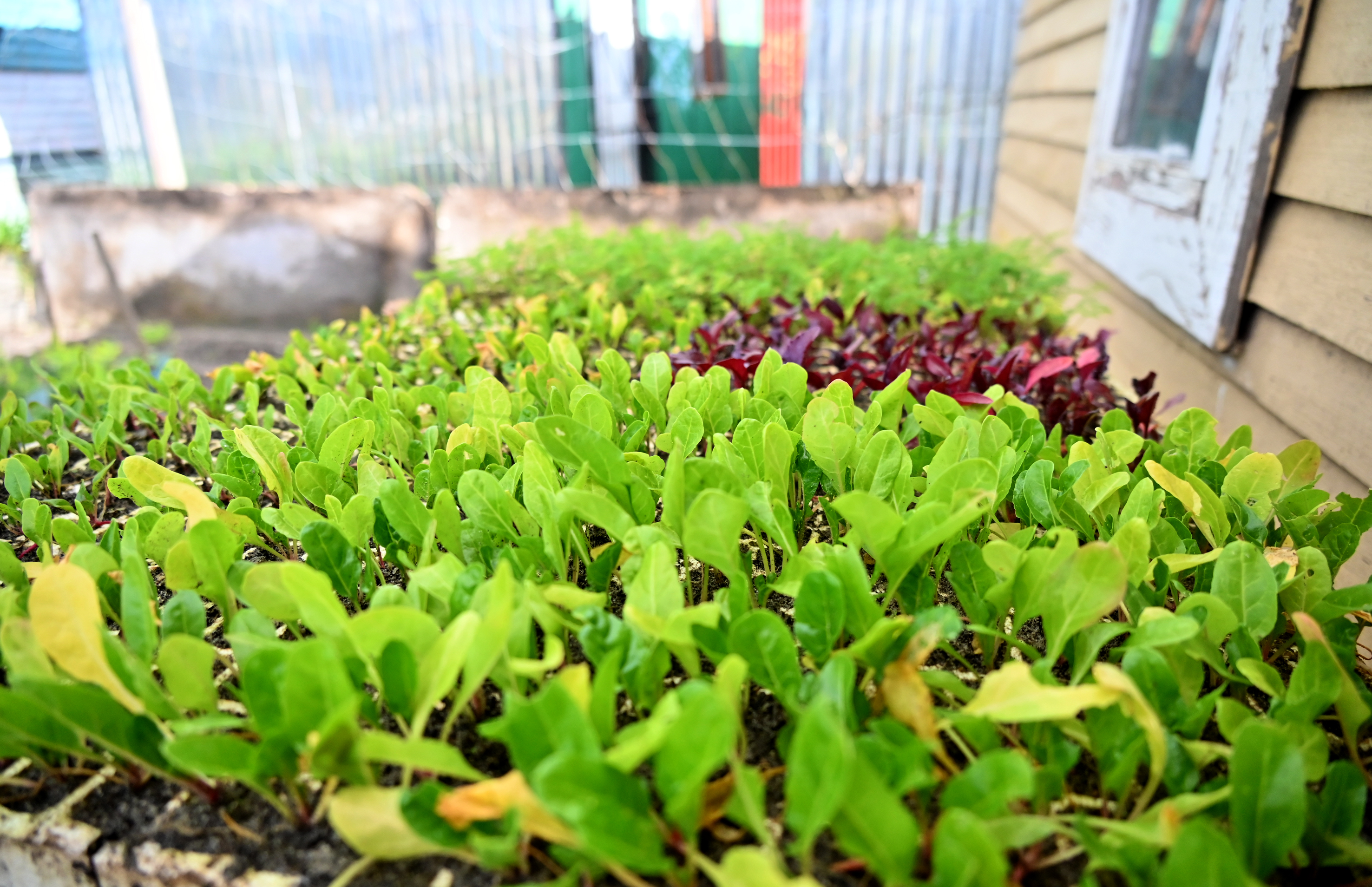
Vegetables waiting to be planted in the Mfuleni organic garden. (Photo: Nathi Qondile)
After she resigned from her job, she used the money she got from her payout to start a kitchen which became known as Uphakanini, meaning “When are you dishing?” in isiXhosa, something that she says passersby always used to ask as she prepared food.
“I started Uphakanini from my own pocket,” Ma Hazel proudly tells Daily Maverick. The aim of the kitchen was to start conversations around how people could grow their own food and the importance of good nutrition, how gender-based violence was affecting the community, as well as providing meals for the early childhood development (ECD) centres in the community, some of which have closed because of a lack of funding.
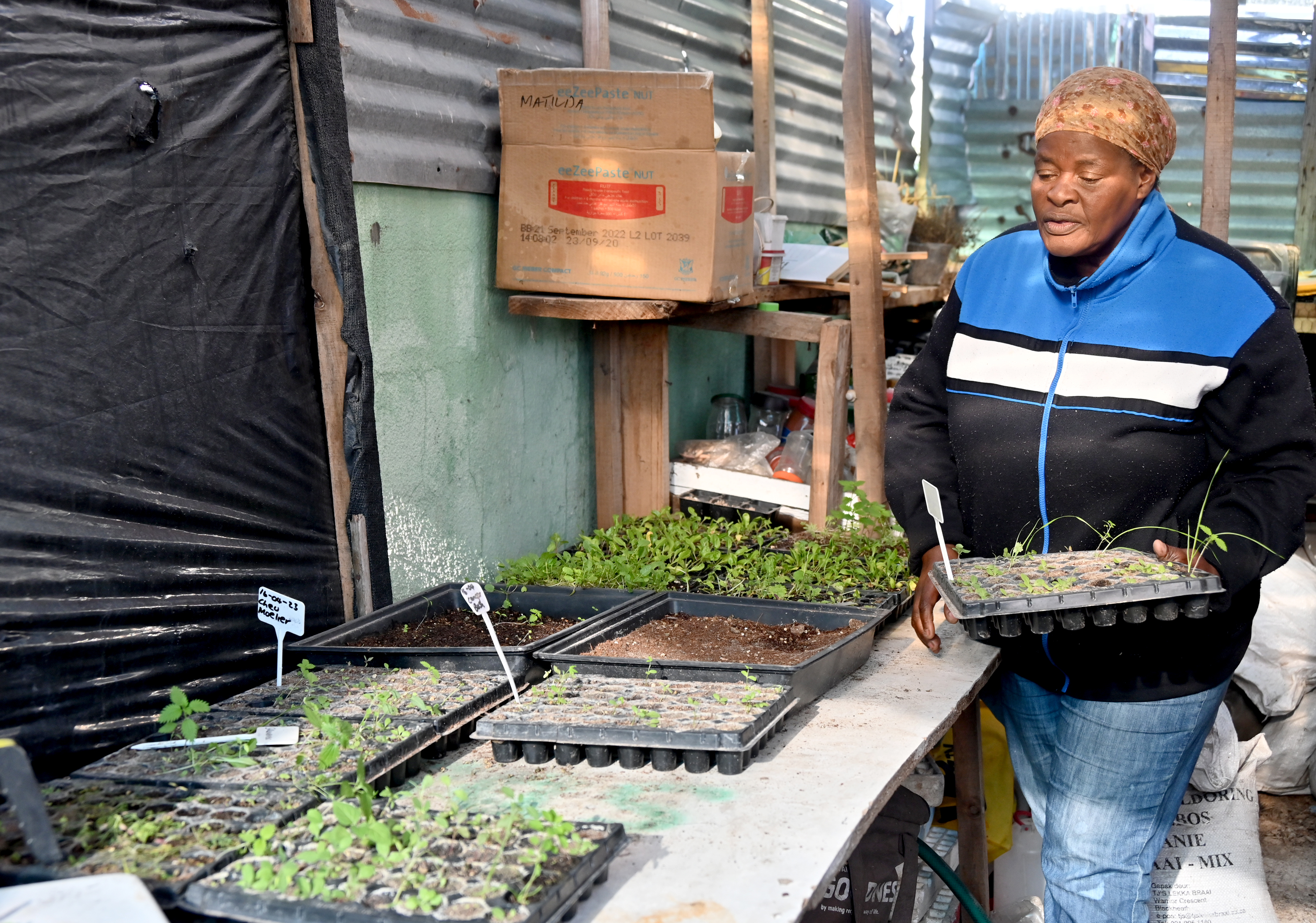
Nomphumzi Hazel Nyaba works in her beloved garden nursery. (Photo: Nathi Qondile)
At the property that Ma Hazel uses for the Uphakanini kitchen and the food garden, one is greeted by rows of cabbage, lettuce, spring onions, tomatoes, and even strawberries and prickly pears. She tends her garden every day and picks produce from it to cook meals in her kitchen which she serves to the community three times a week.
She also has a nursery where she grows an array of herbs, which she adds to the meals she cooks.
“The reason I started this was to work with people and I wanted to ensure that the ECDs in the area have nutritious food for the children. People also often feel ashamed to have to ask for food and needing assistance, so I thought if I could add activities like training on how to grow food, workshops for the elderly and on GBV, it would make them feel better when they walk out of here with their skaftin (lunchbox) because they would also be walking out with more knowledge.”
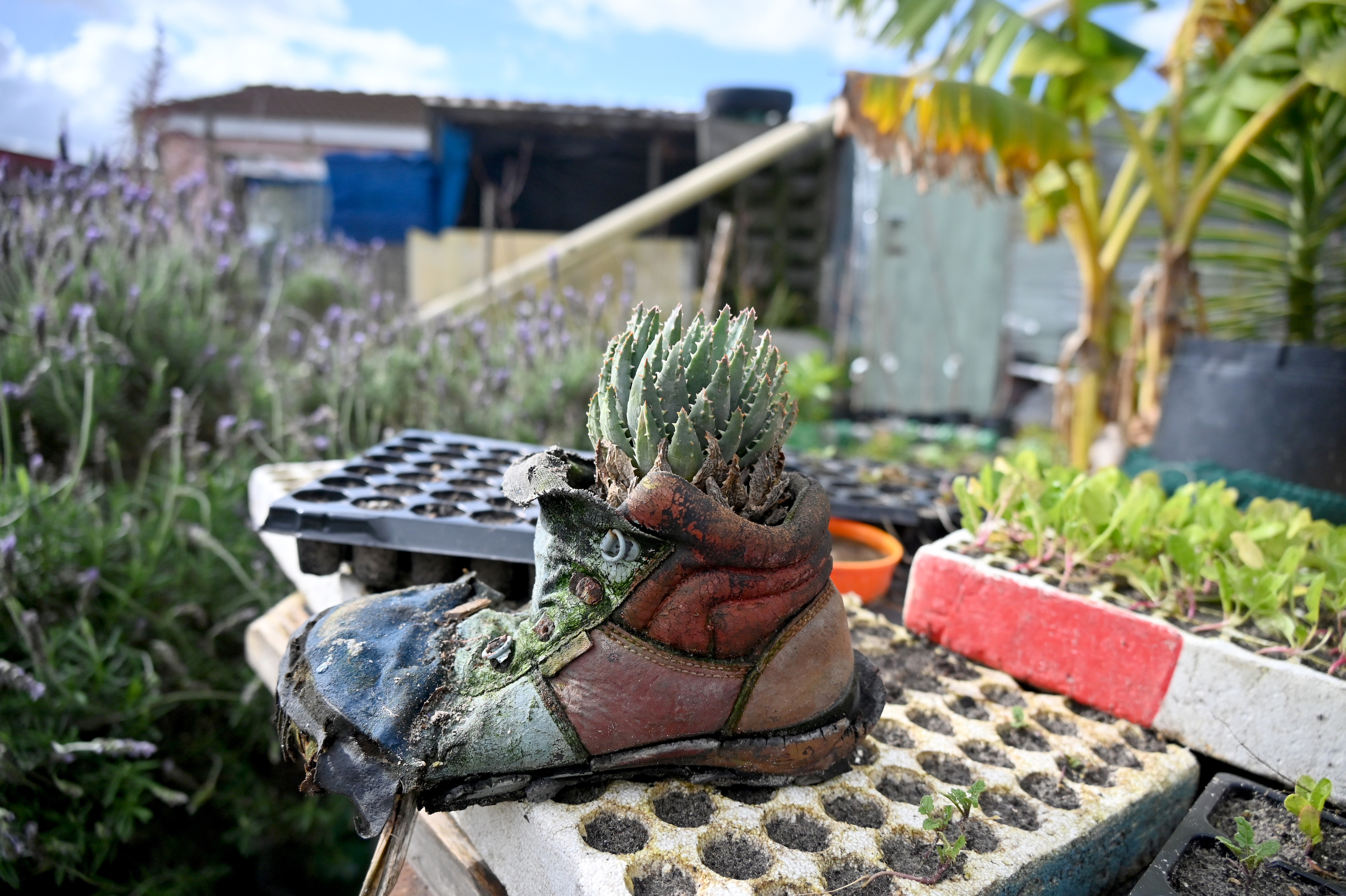
A boot contains a succulent in the Mfuleni organic garden. (Photo: Nathi Qondile)
On the opposite end of the makeshift kitchen – which is not a solid structure, but a shack – is another incomplete shack-like structure which Ma Hazel says she would like to convert into an ECD and aftercare facility.
“At the moment, it’s just these few planks and metal sheets, but I think if I could raise R10,000 I could fix it up nicely for the children to have a place to be and food to eat while their parents are at work.”
Ma Hazel says that she will continue to do her part to not only provide healthy cooked food, but also to teach people how to grow vegetables. DM



















People like this are the reason why our world still turns.